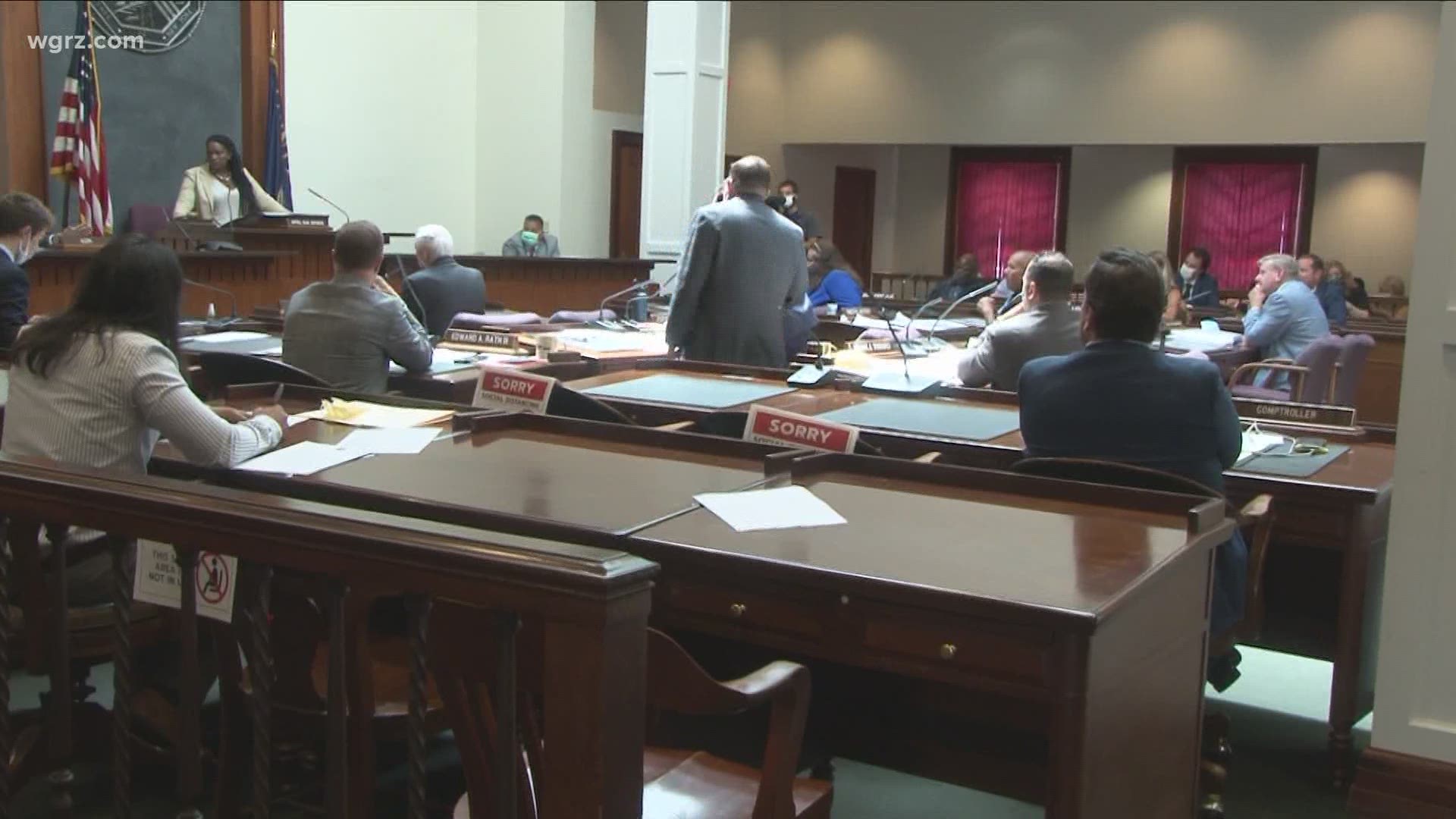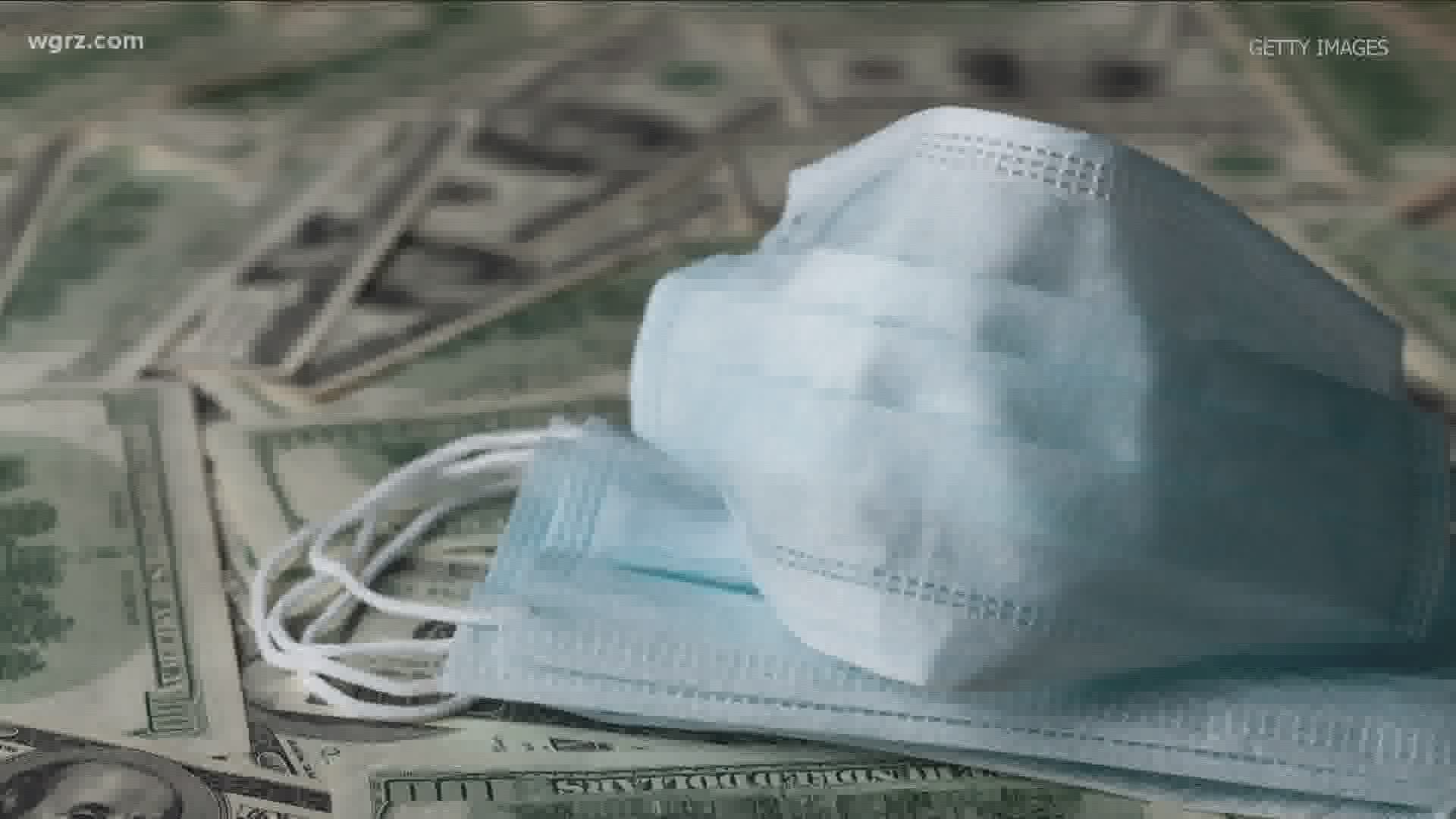BUFFALO, N.Y. — The Erie County Legislature is going into its annual summer recess and normally wouldn't meet again until September.
But legislators will return for a special session next week to continue discussing the amounts of overtime paid to certain top-level employees during the COVID-19 crisis.
Lawmakers have raised questions regarding overtime paid to managerial and confidential employees, who are salaried, political appointees, not entitled to overtime unless there's a declared state of emergency.
In the first 12 weeks after the one declared by County Executive Mark Poloncarz surrounding the COVID-19 pandemic that began in mid-March, 54 of these workers collected nearly $1 million in overtime.
Further, though they only make up 6 percent of the county workforce, they accounted for 26 percent of the overtime paid to county workers during that time frame.
Topping the list is health commissioner Dr. Gale Burstein, who got $88,000 in additional compensation in the first three months of the crisis, and who was paid, like the others, out of COVID-19 funds from the federal government.
“If they earn it and they're working hard … it's a government, and people don't work for free,” Poloncarz said in defending the payouts. “Under the governmental rules you have to compensate them.”
Poloncarz explained that these employees have been expected to be available at all times during the declared emergency (which continues) and claims they often put in “16 to 18-hour days.”
He also insists that while many of them did put in considerable hours in the weeks following the onset of the crisis, most are no longer doing so.
“We’re now pretty much back to 8 hour shifts so the overtime, even if we’re still in an emergency situation, overtime is not being incurred anywhere near to what it was before. And if it is being incurred at the same rate, then, as I told my department heads, something isn’t right. You shouldn’t be working 80 hours a week now and if you are, then it makes me question the work being done. But to my knowledge none of them are doing that,” Poloncarz said.
Moreover, Poloncarz noted that the employees are being compensated under rules adopted by the legislature.
A perpetual crisis
“The current mechanism set in place under previous bodies were anticipating states of emergency that were kind of structured around snowstorms and things that, which we saw coming to an end,” said Legislature Chairwoman April Baskin, who has led the call for a complete and accurate accounting of the overtime hours logged and duties performed by those who were paid.
Baskin and other legislators have noted that unlike emergencies experienced in the past, COVID-19 has presented a “perpetual crisis” with no end in sight.
“That being said, we need to make sure this process of special emergency overtime for managerial confidential employees is structured in a way that we can manage it honestly during a perpetual crisis, like the one we are facing right now,” Baskin said.
Baskin confirmed that among the ideas being considered would be a cap or limitation on the number of hours or the amount of money these employees could collect during an emergency.
“I’m also open to putting a freeze on payments to those who are getting overtime if there isn’t proper documentation that can showcase exactly what duties they performed to warrant the overtime,” she said.
To that end, Poloncarz submitted 65 pages of documents that purport to account for the activities of several of the near dozen such employees who work at his pleasure.
However, after reviewing them, Baskin says she still has questions.
In addition, the Sheriff’s Office, which has several managers who were paid tens of thousands of dollars after claiming hundreds of hours of overtime each, has yet to forward its accounting of their activities.
“We wanted to give them an appropriate amount of time to produce that documentation,” said Baskin, who expects to receive it on Friday.
“We’d like to see those documents before we make any decisions … but the taxpayers deserve answers,” said Baskin, who added that getting those answers as quickly as possible was why she wanted the legislature to convene in the special session.
“That way if we need to pass some legislation related to this we can do so,” she said, noting that lawmakers would otherwise have to wait until September when the recess is over.
The special session is scheduled for July 30.



